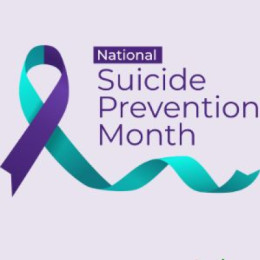Posted On: August 4, 2022 by Community HealthCare System in: Community health news

The COVID-19 pandemic disrupted many families’ routine healthcare appointments. Immunization rates for children are lower than before this disruption, and that’s a cause for concern for healthcare providers around the country. Immunizations prevent many diseases and reduce the transmission of infections in our communities, and they are one of our most important tools in protecting the health of our children.
Dr. Kendra Reith and Dr. Nicholas Cahoj recently took time to answer a few common questions about immunizations. Read on to learn more, then be sure to schedule a visit with your provider to make sure your family is caught up on immunizations.
What immunizations should my child receive?
Dr. Cahoj: From birth to age six, children should receive three hepatitis B, three rotavirus, four H. Influenzae type B (Hib), four pneumococcal, four inactivated polio, five diphtheria/tetanus/pertussis (DTaP), two measles/mumps/rubella (MMR), two varicella (chickenpox), and two hepatitis A vaccinations. Many of these vaccinations come in combination form to limit the number of needle sticks. We also recommend giving annual influenza vaccinations starting at age 6 months.
Older children and adolescents through age 18 should receive one tetanus/diphtheria/pertussis (Tdap) booster at age 11-12 and two meningococcal immunizations (one at age 11-12 and again after age 16). Again, an annual influenza vaccination is recommended. Two or three doses of human papillomavirus (HPV) vaccine can be received in the teenage years, depending on what age the series is started.
Find more information on the Centers for Disease Control website.
Should I feel worried about my baby or young child receiving so many immunizations? What side effects will my child experience?
Dr. Cahoj: All vaccinations and medications carry some risk for adverse or allergic reactions. Severe side effects and allergic reactions are very rare and should not deter you from giving your child a vaccination. The benefits of immunization far outweigh the risks. The typical side effects are usually mild (localized swelling, redness, tenderness, and low-grade fever) and usually resolve in 1-2 days without intervention.
Dr. Reith: Sometimes parents worry about giving several vaccines at the same time, with fears that it may overwhelm their immune system or that it’s “just too much all at once.” The antigen load in today’s vaccines is less than what has been administered in the past, even though the number of vaccines has increased. In addition, babies come in contact with MANY more antigens in their day-to-day lives (when they crawl on the floor, put the dog’s toy in their mouth, eat new foods, etc.) than they receive from their immunizations, even if they receive several vaccines in one day.
What if I want to adjust my baby’s immunization schedule?
Dr. Cahoj: A split or delayed immunization schedule is not recommended, as it places your infant or child at risk for potentially severe infections that could be avoided. However, we would rather see your child receive some immunizations or delayed immunizations rather than none at all. We will work with you to individualize your child’s vaccination schedule if you feel that it is in the best interest of your child. Keep in mind that some immunizations cannot be split, such as MMR or DTaP.
Dr. Reith: The current vaccine schedule was developed after years and years of research. If there was a better or safer way to administer vaccines, we would do it. Each vaccine is given at a specific time to best protect your child when they are most vulnerable to different kinds of infections. Altering this schedule means that your child will not have protection when they need it most. I strongly advise against splitting or delaying immunizations for this reason. Of course, there are always exceptions, and occasionally there are medical reasons why we cannot adhere to this schedule. If you think this might apply to your child, please talk to your healthcare provider.
What vaccines are important for older children and adolescents to receive? Why are HPV and meningococcal vaccines recommended?
Dr. Reith: HPV is a virus that is spread via sexual contact; it is best known for causing most cases of cervical cancer in women. However, it can cause other cancers of both the male and female reproductive systems as well as head and neck cancers. This is one of the reasons that it’s important for both boys and girls to receive the HPV vaccine. We routinely start the 2- or 3-dose HPV vaccination series at age 11-12, but it can be started as early as age 9. Our goal is to immunize patients before they become sexually active. It’s pretty cool that a vaccine your child receives now can help prevent cancer later in life!
Meningococcal vaccines are also recommended to be given at age 11-12 and again at age 16. These vaccines help prevent against meningitis, a dangerous infection of the brain and spinal cord, which can be life-threatening.
What are your recommendations on COVID-19 vaccines for infants, children, and adolescents?
Dr. Reith: CHCS has COVID-19 vaccines available for anyone who is age 6 months and up. The American Academy of Pediatrics recommends that all children over 6 months of age receive the vaccine unless they have a contraindication. Two COVID-19 vaccines are currently available for children: Pfizer and Moderna [CHCS offers the Pfizer vaccine for children]. Both vaccines were put through rigorous testing to ensure they are safe and effective. Even if your child has had COVID-19 before, it is still important that they receive the vaccine, as they can certainly catch it again. Although many children seem to have generally mild symptoms with COVID-19, it is not a benign disease. Multisystem inflammatory syndrome in children (MIS-C) is a (thankfully) rare but serious condition that can result from COVID-19 infection and have long-term effects. Studies have also shown that children who contract COVID-19 are at a higher risk for myocarditis (heart inflammation) and diabetes. Vaccines are the best way to help reduce the risk for infection, and in turn, these other complications.
If I have cared for your child before, you have likely heard me say that I will never recommend something for your child that I would not give my own son. The same holds true with the COVID-19 vaccine. My son is 20 months old and is beginning the Pfizer vaccine series. If you have concerns or questions about the COVID-19 vaccine, please talk to your child’s healthcare provider.
What will my child’s immunizations cost?
In general, those with health insurance will not incur out-of-pocket expenses for immunizations.
For uninsured or underinsured individuals, CHCS participates in the Vaccines for Children, or VFC, Program through the Kansas Department of Health and Environment. The program helps ensure that all children have a better chance of getting recommended vaccinations on schedule. Eligible children who are on KanCare or who are not covered by insurance can receive vaccines at no cost at our Onaga, Centralia, or St. Marys Clinics. A minimal administration charge will apply; call the clinic you wish to visit for details or to make an appointment. County Health Departments also offer other low-cost vaccine options; contact your county’s health department for details.
What immunizations or boosters should adults receive, and when?
Dr. Reith: Adults over age 50 are eligible for the shingles vaccine, and adults over age 65 are eligible to receive pneumococcal vaccines. Annual flu shots during flu season and COVID-19 vaccines and boosters are also recommended for all adults without contraindications to help prevent both severe illness and disease transmission.
All adults should receive a Tdap vaccination every 10 years, or if you have an injury and it’s been more than 5 years since your last one. If you will be welcoming a new baby into the family and it’s been more than 10 years since your last Tdap, it’s important that you get this immunization for the pertussis component, as this infection is particularly dangerous to a newborn with an underdeveloped immune system. Flu and COVID-19 vaccines (and boosters) are important for this same reason.
Pregnant women should receive a Tdap vaccine during every pregnancy, generally around 30 weeks gestation. Flu and COVID-19 vaccines are also safe and recommended during any trimester of pregnancy. Live vaccines, such as MMR and varicella, are not safe to receive during pregnancy but can be administered anytime after delivery.
What if I am immunocompromised?
Dr. Reith: If you are immunocompromised, your vaccine schedule may vary. You may need to get some vaccines earlier than the general population and/or you may need some additional vaccines. Your healthcare provider can help you navigate this and decide which vaccines are best for your specific health needs.
Additional resources
- Immunize Kansas Coalition lists school immunization requirements
- Centers for Disease Control has extensive information about vaccines









0 comments